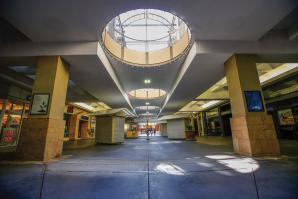Kipp Blewett, 46, is a principal partner and co-founder of Rubicon Partners Inc. He is also a member of the board of directors for the Downtown Sacramento Partnership.
“The Downtown Sacramento Partnership is challenging city leadership to focus and prioritize its economic development policies. If we correctly apply the assets we have, a general-fund revival can be realized.”
“In the post-redevelopment era, Sacramento has to do things differently. In the next economic cycle are we going to [produce] suburban sprawl, or are we going to be a thriving downtown core? There’s a big, young demographic out there that wants to live urban. They’re not ready for a big suburban house. If we’re waiting to repeat the last cycle, I think we’re going to be disappointed. 2007 is not coming back.”
“Cities are largely supported by sales tax, property tax, some utility fees and parking revenues. If we become an attractive destination for capital, those things will thrive. If we don’t, as a region we’re going to suffer. And I question whether we will be able to continue as a full-service city.”
“Can we be an economically successful region if we are a donut? If we have a hollow, soft core? Can we have a general fund that supports the level of service that we all want for public safety, parks, pools and libraries without a thriving downtown sales and property tax base? I think not. Our current city policies have neglected those two general-fund assets.”
“We need a coherent economic development policy that stimulates that asset so that the city has more money. We’re talking about extending the tax base. Creating a real pro-business environment. There’s a recent initiative coming out of the city manager’s office talking about being pro-business. I applaud that, but I also challenge the city manager and City Hall to prioritize what needs to be done downtown first.”
“I’ve long argued that you can’t be pro-jobs and not be pro-business. There’s starting to be that kind of recognition at City Hall. City staff and services have been cut about as much as you can. New revenues are the next step. You can’t cut your way to prosperity.”
“The next economic cycle is closer than most people think. Business interests downtown are now focusing on 2015 as the beginning of the next cycle. Current activity has us optimistic. Retail tenancy along the K Street mall between the 1000 block and the Convention Center is almost 100-percent leased for the first time in decades.”
“We have to focus on cleaning up the environment in and around these key assets. We really don’t have the large-scale problems that major urban cores traditionally have. We don’t have blocks and blocks of blight. We have three or four blocks that are a problem. We bring with our SROs (single room occupancy hotels) an undesirable element. There are a lot of felons in that group. And we have a high propensity of [Regional Transit] fare-jumpers coming downtown.”
“If we treat our downtown like a toilet how can we be a destination for private capital or a destination for retail shoppers? If you don’t take care of your own house, people don’t want to come over. It’s the same with attracting outside capital. We have to have the courage and political will to make those difficult decisions. There are some tough issues, but they are not insurmountable.”
“At Downtown Plaza alone, the number of retail tax dollars that have slipped from its peak is staggering. With its new owner (JMA), the city finally has a willing partner again with that asset. The city has to help get it back on its feet. If successful, the jump in sales and property tax, along with parking fees, are all additional revenues that go directly to the general fund.”
“JMA is not Westfield. These are guys that have a pretty big vision and typically work on large, catalytic projects. But City Hall can’t come to the table with its aspirations without also bringing assets. If infrastructure improvements are needed some public funds are going to have to be made available. That kind of calculus has to happen. We can’t expect the private sector to wholly take on these old issues.”
“Before investing money, JMA is going to ask the city some hard questions. What’s going on with the Marshall Hotel? What’s going on with the 700 and 800 blocks of K Street? Why is the 8th street light-rail station an absolute toilet? There’s no doubt they are going to ask those questions. And if there’s a major retail tenant considering a downtown location, they’re going to ask those same questions.
“If we have the political will to address these issues, downtown can get back on the list as a destination for capital. But these are going to be unpopular changes. We must shut down the Marshall Hotel as an SRO destination. We need to have RT stop fare jumping, and we need to remove the 8th street light-rail station. If we don’t want to do what needs to be done, then we need to lower our aspirations. Roll out the pink carpet because we won’t be a destination for capital or upscale retail shopping. And downtown will not be a contributor to the general fund.”
“If your litmus test is what will immediately generate revenues for the general fund, then completing the development of downtown should be the highest priority. People can have their opinions about other things. But if you want to get more police and fire service back on the streets, money for our parks, libraries and trash pick up, then we have to focus on what can generate revenues in the near future. Downtown development can do that. That should be the focus and top priority for the city manager, City Hall and the mayor.”
“Downtowns have to have a distinctly different value proposition than the suburbs. Downtown Sacramento is not going to be the next great neighborhood; it needs to be the next great destination. If we try to be the next midtown or the next Roseville shopping center, it’s not going to work. It needs to be distinctly urban with civic and cultural amenities that are not available elsewhere. We can go in the other direction with big box discount stores, but we’ll all have to lower our aspirations for the city.”
“RT must address fare-jumping. In New York City, it’s called turnstile jumping, and they did curtail it. If we allow people to break the law to come downtown it sends the wrong message. These fare jumpers are the people hanging out on the 700 and 800 blocks and Downtown Plaza. Why would private capital invest there when we have people urinating at the front door?”
“The Marshall Hotel is probably the biggest contributor to the negative economy downtown. It is 100-percent occupied by felons, and something like 75 percent of those are sex offenders. These are not low-income housing people that we are protecting or finding homes for. These are undesirables that are only a couple blocks from the holiday skating rink. No outside capital will come to town unless this situation is dealt with.”
“There are a lot of projects out there that are very worthy and very interesting, but many of them aren’t catalytic projects. The railyards, waterfront and Capitol Mall are great projects. But they aren’t shovel-ready projects that are ready to get off the ground in the first part of the next cycle. They are not ready to help the city’s general fund. In a post-redevelopment era, we must focus on the assets we have already spent money on and get them moving. Everything else can wait until the next cycle.”
Recommended For You

Renaissance on Schedule
The new downtown arena is on track for a 2016 opening
Already embraced by business and city leaders as a catalyst that will ultimately launch a regional renaissance, Sacramento’s long sought and hotly debated entertainment and sports complex is finally taking shape.
Building a Vibrant Downtown
An arena will revitalize the central city
When I was a girl, a visit to downtown Sacramento was thrilling. It was a busy, bustling place with Weinstock’s (“Sacramento’s Finest Department Store”) at 12th and K streets marking the high point of any shopping expedition.
I’d like to see a downtown Sacramento that can meet or exceed those childhood memories, one that is no longer scarred by vacant buildings, low-budget retailers and grimy streets.



